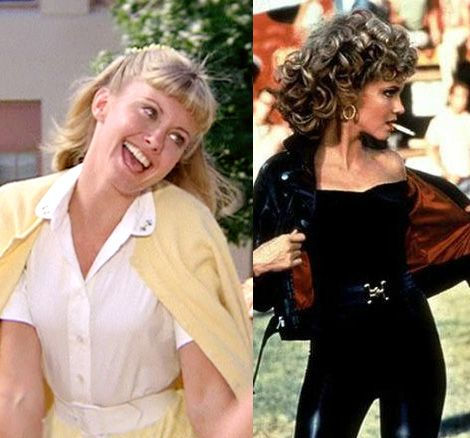Queer theory - why that film you love is actually a little bit sexist.
- Nick Saward
- Feb 18, 2021
- 3 min read
Grease is a good example of a film that reinforces traditional gender norms potentially unintentionally. It’s such a classic that we often forget the message it gives out, when we step back and look at it without our rose tinted glasses on we can see that what it really tells us is that Sandy had to change almost everything about herself to get Danny to like her, going from innocent, young “I don’t smoke” Sandra Olsen to sexy, leather clad Sandy.

There are many parts of the film, apart from the final message, that reinforce these gender roles. A huge part of the film that does this the entire “Summer Nights” number where both Sandy and Danny recount their summer with each other. However, they tell theirs very differently with Danny’s focus on the sexual parts and Sandy’s focus on the time she spent and enjoyed with him. While we never find out the truth about the summer, what we are shown at the very start of film leads us to believe that Sandy's account is the more realistic of the two.
Regardless of the realism of either of account, the difference in their retellings shows us the expectations of women compared to men of the time (filmed in the 1970s, set in the 1950s - true of both periods). Men were allowed to discuss their sexual liberation and all they did with/to women but women were expected to be innocent, polite and prissy young ladies. This double standard is also reinforced through costume codes - the girls in the film wear skirts and dresses all the way through, care about their looks, always have a full face of makeup done, hair done etc. Whereas the boys have a fairly set costume for the entirety of the film, jeans, leather jackets, gelled back hair - they care about their appearance but in a masculine way that’s cool to do so - and look consistently “cool.”

Another example of media that reinforces traditional gender norms/roles is New Girl, although not entirely stereotypical and fairly liberal in its representations of gender and other groups. The general plot of the show is that Jess, the protagonist, moves in with 3 male roommates and they all deal with life and all the problems that get thrown at them with each other by their sides. The group eventually grows but Jess is still the main female character throughout the series and still used to reinforce gender stereotypes. For this I will only be looking at the first series out of seven. The lads that Jess moves in with are messy and unorganised, Jess changes this. Only reinforcing the age old stereotype of women being domesticated and doing the cleaning within the families. This stereotype was at the height of action during the 1940s and 1950s when men were the only ones who worked.

Not only does she “tidy” them up but she also works as a teacher of younger children. This is not explicitly reinforcing any stereotypes but primary (or the American equivalent) teachers are often women as they are labelled as nurturing and more caring than men, only further pushing the narrative of women being the carers of the homes and being there to fix “broken” men.

On the other side of the gender stereotype spectrum, the men she moves in with are all fairly typically masculine in different ways. Nick is “a slob,” Schmidt is a flirt, overtly sexual and Coach is sporty.

All this just leads to prove the point that a lot of media products reinforce stereotypes in ways that we don't even notice. We don't notice them because they become so normal and we become so accustomed to them that we forget what stereotypes we're even on the lookout for. that's not to say that media products that reinforce stereotypes can't be enjoyed, just that the fact that we enjoy them doesn't take away from the fact that they reinforce stereotypes.


I never know how to define Grease as a movie - I know that it is ostensibly a musical but it is so strange that this doesn't seem to quite fit as a genre classification, it feels far too knowing and self aware of its own absurdities and its own representations. You're right - the messages it sends about gender are a mess! Conform to the most basic female stereotypes and you'll 'get the guy'!! Even by 1970s standards, this is a low blow for any kind of feminist movement! However, is it all 'just a joke' - is it a comment on the 1950s view of the world. 1970s pop culture became a little bit obsessed with the 1950s…